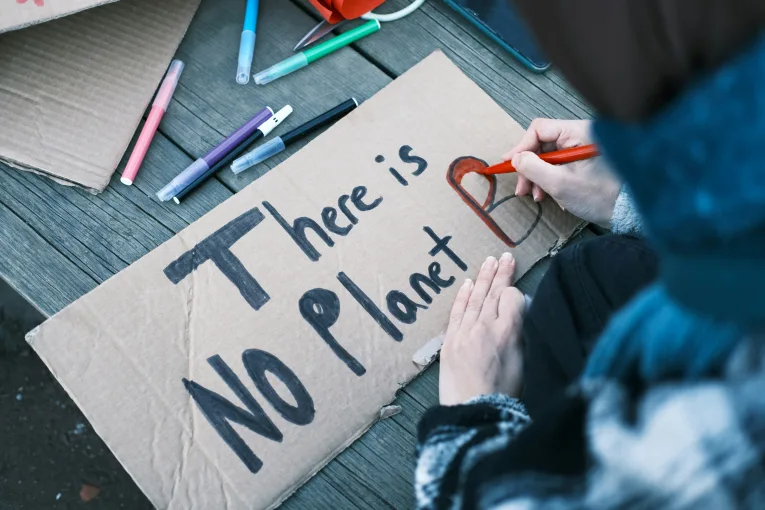
Woodland, CA – Yolo County announced on Friday, the adoption of its groundbreaking 2030 Climate Action and Adaptation Plan (CAAP), unanimously approved by the Board of Supervisors on December 3, 2024.
“This visionary plan positions Yolo County as a regional leader in the fight against climate change, charting a bold path to achieving a carbon-negative footprint by 2030—one of the most ambitious climate goals of any local government in the United States—while prioritizing equity at every step,” the county said in a release.
The development of the CAAP began in 2020 when the Yolo County Board of Supervisors adopted a Climate Emergency Resolution (Resolution No. 20-114), recognizing “the urgent need to address climate change impacts including increased wildfires, extreme weather events, and their associated effects on public health, agriculture, and infrastructure.”
The resolution directed staff to develop a plan to achieve a carbon-negative footprint by 2030.
“Yolo County is already experiencing impacts from the changing climate, and we know we need to take immediate action to reduce our emissions and protect our residents,” said Supervisor Lucas Frerichs. “This plan reflects the County’s unwavering dedication to equity and advancing solutions that will build a more resilient, sustainable community for generations to come.”
At the heart of the CAAP is a commitment to ensuring a just transition for all residents. Plan development was guided by the Yolo County Climate Action Commission, an 11-member public advisory body that includes representatives from all 5 County Districts, the Yocha Dehe Wintun Nation, and the University of California, Davis. Yolo County also worked collaboratively with five dedicated Community Outreach Partners—the De Colores Resource Center, Cool Davis, the Center for Land-Based Learning, Davis Odd Fellows, and the Yolo Food Bank—to engage and center the voices of frontline communities, including low-income community members, farmworkers, and rural residents.
An Equity and Engagement Technical Advisory Committee coordinated more than 80 community engagement events throughout the plan development process, including community pop-up events, bilingual public workshops, and presentations to local community groups. Furthermore, more than 1,000 community members responded to planning surveys, ensuring the CAAP reflects the needs and aspirations of Yolo County residents and that the benefits of the plan extend to everyone, particularly those most vulnerable to the impacts of climate change.
The CAAP outlines a robust framework designed to achieve its ambitious goals through 10 transformative strategies, 40 specific measures, and 180 detailed actions across critical sectors such as on- and off-road transportation, energy consumption, natural and working lands, water, and solid waste. Phase I Implementation begins this month and will direct resources to Yolo County communities, including through the launch of home weatherization and electrification rebate assistance programs for eligible community members.
In addition to outlining measures for reducing greenhouse gas (GHG) emissions associated with transportation and building energy use—the two greatest sources of emissions in Yolo County—the plan emphasizes support for nature-based solutions to achieve the carbon-negative goal.
Led by the Yolo County Resource Conservation District, a Natural and Working Lands Technical Advisory Committee comprised of farmers and ranchers identified a set of priority conservation and management practices that not only enhance carbon sequestration but also improve soil health and protect the natural resources vital to Yolo County’s agricultural and rural communities. By fostering sustainable practices and innovative approaches, the CAAP promises to create healthier ecosystems, bolster local economies, and enhance the quality of life for all residents.
“Agriculture is at the heart of Yolo County’s identity and economy,” said Kristen Wraithwall, Yolo County Sustainability Manager. “This plan is a testament to our commitment to supporting the agricultural community as a vital partner in building a sustainable and resilient future.”
As implementation begins, the County is dedicated to transparency and accountability. Staff will provide regular updates to the Board of Supervisors and will be launching a public-facing CAAP Tracking Dashboard where community members will be able to monitor progress on individual plan actions.
What a joke, in a county (like most others) that pursue sprawl.
Also, I see that the Yocha Dehe Wintun Nation is mentioned again. Doesn’t their oppositive to two other proposed tribal casinos INCREASE the amount of traveling that those addicted to gambling (or employment therein) have to travel? Wouldn’t those people be better-served by having casinos closer to them?
Wouldn’t it be “better” (in regard to greenhouse gasses) to have a casino in just about every town?
I’d also ask the same type of question of the politically-connected Graton tribe.
Delusional hypocritical idealists, our politicians and our ‘climate’ activists. Transportation is the #1 contributor to air pollutants, and while waving the flag “over here” for you all to stare at with fireworks and a marching band about ‘reducing emissions’, both the supes and the council support the widening of I-80 because it brings money to the county, once again doing destruction now because of shellfish interests, and coming up with BS goals they will never meet in place of having the courage to stand up against the pavement interest and actually make a difference now.
‘oh, but they are going to build it anyway’. — yeah, nice way to show courage, deluded cowards.
*A shellfish interest is like a selfish interest, but you also get gastrointestinal issues similar to eating bad shellfish
“This visionary plan positions Yolo County as a regional leader in the fight against climate change, charting a bold path to achieving a carbon-negative footprint by 2030″
I’ll take things that will never happen Alex for $200.
Certainly not with that attitude